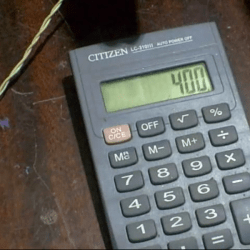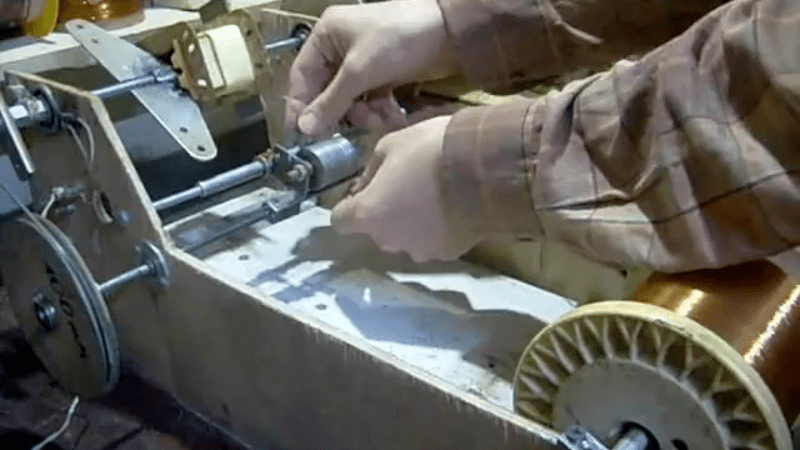“Wait, was that 423 or 424?” When you’re stuck winding a transformer or coil that has more than a few hundred turns, you’re going to want to spend some time on a winding jig. This video, embedded below, displays a simple but sufficient machine — with a few twists.

The first elaboration is the addition of a shuttle that moves back and forth in sync with the main spindle to lay the windings down nice and smooth. Here, it’s tremendously simple — a piece of threaded rod and a set of interchangeable wheels that are driven by a big o-ring belt. We love the low-tech solution of simply adding a twist into the belt to swap directions. We would have way overthought the mechanism.
But then the hack is the digital counter made out of an old calculator. We’ve seen this before, of course, but here’s a great real-world application.
Thanks [Jānis] for the tip!
















Pretty cool. It would be easy to motorize it, use a few Hall effect sensors to multiply the speed of the bottom axle and a pair of end stop switched to automatically reverse the direction of the carriage.
How many coils has that thing got? He needs a second calculator to count those!
That’s also a fancy soldering iron he got here [12:09].
That’s fantastic piece of gear, can solder wires and defend household in case of robbery. Also, handy interrogation device. True multipurpose.
> handy interrogation device
Also known on the Russian internetz as a thermorectal cryptanalysis tool, which famously allows any code to be cracked in O(1) time.
I used a pedometer and microswitch for my hand cranked coil winder. Probably a bigger supply of them too since the utility of a calculator tends to persist longer than the novelty of a pedometer.
Mesmerizing. Didn’t see a source for that beautiful preformed core anywhere though. Damnit.
The question I have about this is, what kind of hardware is worth spending this amount of time to build a customer replacement transformer for?
tube amp transformers for audiophiles. custom coils for magnetotellurics. possibly ham radio. projects done by a makerspace…
That’s Russia, typical montly wage for EE with 10 years of expirience is about $300. They can’t just buy a new TV when old one breaks down.
Guessing a restoration or some one-off like that. Something they don’t make a replacement part for. There are a lot of old radios and ham equipment that would qualify I’m bet.